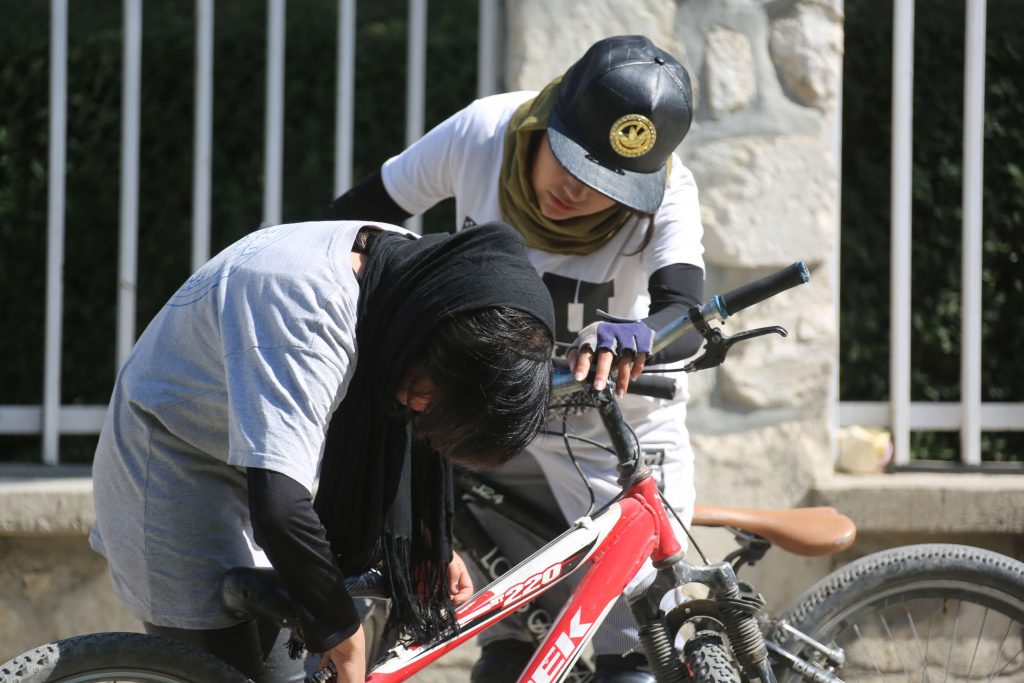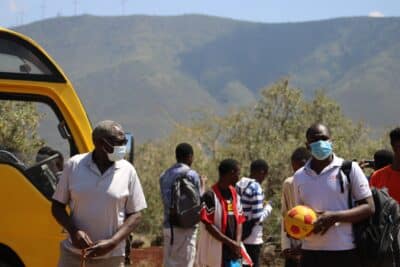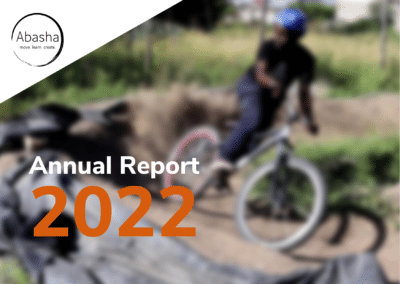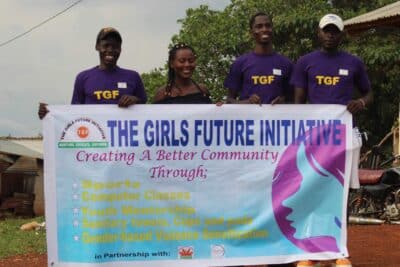Sport is more than just exercise: It connects us with like-minded people, regardless of social background, gender or religion, and conveys values such as tolerance, fairness and self-confidence. At the same time, exactly these qualities make sport an easy gateway to more education – no matter where you are from.

When people think of sports and education, they probably first have – good or bad – memories of physical education classes from their school time in their minds. Physi-cal education has become a staple in most schools, but does it live up to its im-portance for children and young people? According to a WHO study from 2017, most young people, especially in industrialized countries, still do far too little physi-cal activity – in Germany, a full 83.7% of all 11- to 17-year-olds don’t move enough. It’s time to change that!
Sport builds intellect – access to education through sport
Sport and education are key issues in our society and have more in common than might be apparent at first glance. Sport offers valuable access to education on sev-eral levels. Children learn important competencies and skills through physical edu-cation, such as team spirit, trust and responsibility, which are also of central im-portance outside of physical education. A motivating sense of achievement through regular training can help children and young people to become more self-confident in life and thus also more confident in educational matters. At the same time, sports offer a healthy balance to everyday stress, be it in school, in your job or at home. It clears the mind and lifts the spirits – ideal conditions for learning.
By the way: Sports are not just for children and young people. Adults also have the opportunity to develop their personality and skills through sports. Sport builds intel-lect – for life.

Education builds strength – self-confidence and equality through sport
Especially in conservative regions of the world, girls and women in general have a hard time gaining a foothold in traditional “male domains.” This often also includes certain types of sports. Low-threshold local sports programs that can be implement-ed in cooperation with international partner organizations and provide access for girls – one example is the Drop and Ride program in Kabul, Afghanistan – set mile-stones in social and societal gender equality. The education and training of trainers on site creates empowerment and self-confidence as well as an important founda-tion for the future at school and in the workplace. At the same time, social issues can be addressed in a playful manner in small sports groups, and targeted courses, such as language or computer courses, which would not have found a place in school, can also be held. In this very specific way, too, sport can be a door opener for more education.
Sport and education inequalities in Germany
But here in Germany, too, neither sports nor education are fairly distributed. For ex-ample, a 2012 / 2013 study by the Federal and State Statistical Offices showed that the higher the level of education of their parents, the more young people participate in sports. This yields important findings for policymakers: In addition to mandatory school sports programs, extracurricular sports opportunities in particular must be offered on a low-threshold and cost-effective basis. In addition, more sports clubs should offer opportunities to make their programs accessible to children and young people from socioeconomically less advantaged families. This is the only way to ensure that all children and young people – regardless of their level of education – can benefit from the positive effects of sport on their bodies and mental perfor-mance. And only in this way can true educational equality be achieved.

Sport educates – sustainable future development through sport
The United Nations also confirm that access to education can be significantly facili-tated through sport. The 2030 Agenda mentions sport as an important measure for achieving all the Sustainable Development Goals (SDGs). In particular, SDG 3 “Good health and well-being”, SDG 4 “Quality education”, as well as SDG 17 “Part-nerships for the goals” can be directly influenced by sports.
Sport and Education – The cornerstones of Abasha’s work
Abasha was founded on the believe that sport and education are inseparable. That is why we support local initiatives in difficult environments to expand their sports and education programs and to establish stable club structures. This gives local players the chance to expand and pass on their knowledge independently – and thus sustainably expand local sports and educational opportunities for children and young people who need it most.
Sources




